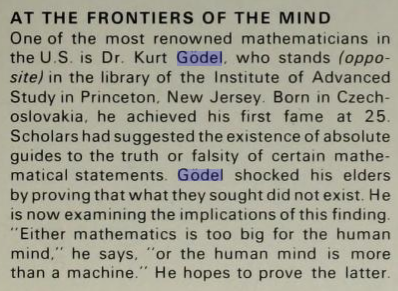The Rolf Nevanlinna Prize
A few days ago I read that Constantinos Daskalakis got the Rolf Nevanlinna Prize for
For transforming our understanding of the computational complexity of fundamental problems in markets, auctions, equilibria, and other economic structures. His work provides both efficient algorithms and limits on what can be performed efficiently in these domains.Thus, according to this, we now can somehow compute economies. However, even economists have started to realize that economies cannot be described with mathematics only. In fact, Why economists need to expand their knowledge to include the humanities is a recent article that discusses exactly this problem. Daskalakis's approach is based on the assumption that humans are Turing machines. Unfortunately, they are not and this is the reason why economists fail so miserably in their predictions. Furthermore, there are some other things that people who work in computational economics "fail" to realize. For example, even if a human does not have capabilities that transcend the capabilities of the Turing machine, a human has a free will and this is definitely not computable. Yes, yes, there are physical theories that "prove" that there is no free will (in fact they prove nothing like that but somehow their assumptions lead to such a conclusion). But if we are Turing machines and there is no free will, then there is absolutely no reason to live! Our lives and our destines are known eons before our birth. Personally, I agree with Harry G. Frankfurt who wrote the following in his book entitled On Bullshit:
One of the most salient features of our culture is that there is so much bullshit. Everyone knows this. Each of us contributes his share.

Σχόλια